The online Series Europa e Mediterraneo. Storia e immagini di una comunità internazionale (Europe and the Mediterranean. History and images of an international community) was launched in 2010 as an institutional publication of the National Research Council, published by the Institute for Mediterranean European History with the aim of restyling Isem’s printed Series, already established since 2004, and converting it into the more evolved e-book format.
The volumes created with digital technology represent a new frontier and goal for Isem’s scientific and cultural dissemination. Employing e-books has made the Institute’s research activities available online and in the shortest possible time, as well as their widespread dissemination, not only to the national and international scientific community but also to a broader audience of interested readers and scholars.
The Digital Series, as the title highlights, represents Isem’s mission. Europe and the Mediterranean are the red threads that bind each volume, giving life to the Euro-Mediterranean soul representing the Institute’s scientific interests. Isem has always studied how Mediterranean Europe has forged its identity and turned its attention to themes and problems arising from the relationships and mutual influences between the countries on the shores of Mare Nostrum and their projections towards the Atlantic and the Americas.
The Mediterranean, the sea of Europe and, at the same time, the gateway to Asia, Africa and the Atlantic world, stands out for its constant change, and the consistency of this change over the centuries is what Isem examines in a chronological arc that stretches from the Middle Ages to the Contemporary Age, up to the present day and the events that take place every day before our eyes.
The subtitle, Storia e immagini di una comunità internazionale (History and images of an international community), is self-explanatory. History interprets change over time, and images reflect that change’s individual and collective representation through artistic, literary or cartographic expression.
The richness of the themes and scientific interests of the Series means that it takes on a multidisciplinary dimension and, at the same time, a transversal interdisciplinarity. This leads to its distinctiveness as a multilingual series.
Each e-book is structured with the ISSN code, thanks to which the Series constitutes a serial; with the ISBN code, which identifies the publishing entity as the publisher of the publications; and finally, with the DOI (Digital Object Identifier), the standard that allows the permanent and unambiguous identification of any entity, object of intellectual property, present in a digital network.
The Series, directed by Alessandra Cioppi, is based on a complex team, the Editorial Editors, consisting of Isem researchers and technicians who are responsible for the scientific evaluation of the contents – evaluated by national and international referees and by double-blind peer reviewing -, the composition, layout and networking of the volumes. The Editorial Board is supported by a multidisciplinary Advisory Board external to the Institute, consisting of scholars with an international profile. It is supervised by three Editorial Managers, a Technical and IT Supervisor and two Online Publications Managers.
Each specific expertise within the Editorial Board contributes to the composition of the e-book and the immediate availability of the results of Isem’s scientific production.
The Series Europe and the Mediterranean. History and images of an international community is available on the platform Torrossa. Casalini full text, at the following link: http://www.torrossa.com.
Online volumes
Printed volumes
2000-2009
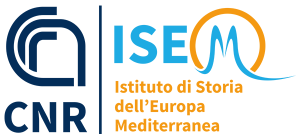
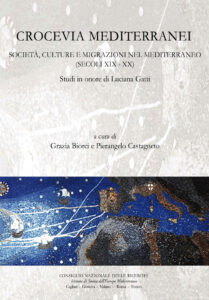 Grazia Biorci, ricercatore presso l’Istituto di Storia dell’Europa Mediterranea (Isem) del Consiglio Nazionale delle Ricerche (Cnr) a Genova, ha una formazione linguistica e lessicografica. Dal 2010 è responsabile della Commessa Migrazioni mediterranee. Storia, linguaggi, educazione afferente al Progetto 10 Migrazioni del Dipartimento Identità Culturale del Cnr. Tra le sue ultime pubblicazioni Verso una pragmatica interculturale: l’espressione e l’interpretazione del disagio psicologico degli immigrati. Prime considerazioni, in Identità mediterranea ed Europa. Mobilità, migrazioni, relazioni interculturali, a cura M.R. Carli, G. Di Cristofaro Longo e I. Fusco, Napoli, 2010, pp. 525-538; Technological transfer: the importance of language in the tradition of competences. First hints on the lexicon of Pratica di Fabricar le Scene e le Machine ne’ Teatri di Nicola Sabbattini da Pesaro, Ravenna 1638, RiMe. Rivista dell’Istituto di Storia dell’Europa Mediterranea, 4 (giugno 2010), pp.437-449.
Grazia Biorci, ricercatore presso l’Istituto di Storia dell’Europa Mediterranea (Isem) del Consiglio Nazionale delle Ricerche (Cnr) a Genova, ha una formazione linguistica e lessicografica. Dal 2010 è responsabile della Commessa Migrazioni mediterranee. Storia, linguaggi, educazione afferente al Progetto 10 Migrazioni del Dipartimento Identità Culturale del Cnr. Tra le sue ultime pubblicazioni Verso una pragmatica interculturale: l’espressione e l’interpretazione del disagio psicologico degli immigrati. Prime considerazioni, in Identità mediterranea ed Europa. Mobilità, migrazioni, relazioni interculturali, a cura M.R. Carli, G. Di Cristofaro Longo e I. Fusco, Napoli, 2010, pp. 525-538; Technological transfer: the importance of language in the tradition of competences. First hints on the lexicon of Pratica di Fabricar le Scene e le Machine ne’ Teatri di Nicola Sabbattini da Pesaro, Ravenna 1638, RiMe. Rivista dell’Istituto di Storia dell’Europa Mediterranea, 4 (giugno 2010), pp.437-449.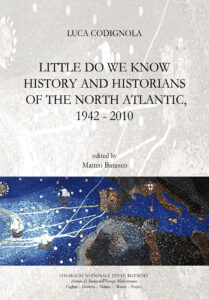 Luca Codignola (Genoa, 1947), DL (Roma), MA (Toronto), DLitt, hon. (Saint Mary’s), is the Head of the Istituto di Storia dell’Europa Mediterranea of the National Research Council (Italy) and Professor of History at the Università di Genova. He is also Adjunct Professor at Saint Mary’s University of Halifax, Canada. He is the author of Guerra e guerriglia nell’America coloniale, 1754-1760 (Venice, 1977), The Coldest Harbour of the Land (Montréal, 1988), Vatican. Archives of the Sacred Congregation “de Propaganda Fide” (Ottawa, 1996), Storia del Canada (Milan, 1999,with L. Bruti Liberati), Colombo e altri navigatori (Genoa, 2007) and Le Saint-Siège, le Canada et le Québec (Viterbo, 2011, with G. Pizzorusso and M. Sanfilippo). His main field of research is the Roman Catholic church in the North Atlantic area in the early modern era. He has also written on the history of European expansion and the history of the Mediterranean in the same period.
Luca Codignola (Genoa, 1947), DL (Roma), MA (Toronto), DLitt, hon. (Saint Mary’s), is the Head of the Istituto di Storia dell’Europa Mediterranea of the National Research Council (Italy) and Professor of History at the Università di Genova. He is also Adjunct Professor at Saint Mary’s University of Halifax, Canada. He is the author of Guerra e guerriglia nell’America coloniale, 1754-1760 (Venice, 1977), The Coldest Harbour of the Land (Montréal, 1988), Vatican. Archives of the Sacred Congregation “de Propaganda Fide” (Ottawa, 1996), Storia del Canada (Milan, 1999,with L. Bruti Liberati), Colombo e altri navigatori (Genoa, 2007) and Le Saint-Siège, le Canada et le Québec (Viterbo, 2011, with G. Pizzorusso and M. Sanfilippo). His main field of research is the Roman Catholic church in the North Atlantic area in the early modern era. He has also written on the history of European expansion and the history of the Mediterranean in the same period.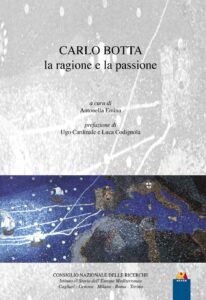
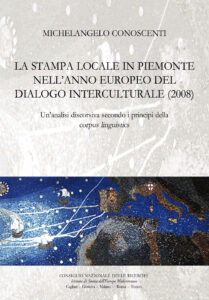 Michelangelo Conoscenti è Professore Ordinario di Lingua Inglese all’Università degli Studi di Torino e associato all’Istituto di Storia dell’Europa Mediterranea del Cnr. ‘Valutatore esperto’ per la Commissione Europea (Direttorato Generale per l’Educazione e la Cultura), è membro dei comitati scientifici di diverse riviste scientifiche internazionali e fa parte del comitato editoriale del «Journal of Multicultural Discourses», pubblicato nel Regno Unito da Routhledge e della rivista «Recherches Cognitives», edito dal Laboratoire des sciences cognitives.
Michelangelo Conoscenti è Professore Ordinario di Lingua Inglese all’Università degli Studi di Torino e associato all’Istituto di Storia dell’Europa Mediterranea del Cnr. ‘Valutatore esperto’ per la Commissione Europea (Direttorato Generale per l’Educazione e la Cultura), è membro dei comitati scientifici di diverse riviste scientifiche internazionali e fa parte del comitato editoriale del «Journal of Multicultural Discourses», pubblicato nel Regno Unito da Routhledge e della rivista «Recherches Cognitives», edito dal Laboratoire des sciences cognitives.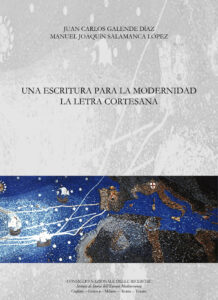 Juan Carlos Galende Díaz es Doctor en Historia por la Universidad Complutense de Madrid y Profesor Titular del Departamento de Ciencias y Técnicas Historiográficas de la Facultad de Geografía e Historia, del que ha sido su Director. Integrante de diferentes equipos de investigación nacionales e internacionales es autor de diversas monografías y artículos de carácter paleográfico-diplomático, entre los que destacan los temas braquigráficos, criptográficos, cronológicos, archivísticos y caligráficos.
Juan Carlos Galende Díaz es Doctor en Historia por la Universidad Complutense de Madrid y Profesor Titular del Departamento de Ciencias y Técnicas Historiográficas de la Facultad de Geografía e Historia, del que ha sido su Director. Integrante de diferentes equipos de investigación nacionales e internacionales es autor de diversas monografías y artículos de carácter paleográfico-diplomático, entre los que destacan los temas braquigráficos, criptográficos, cronológicos, archivísticos y caligráficos.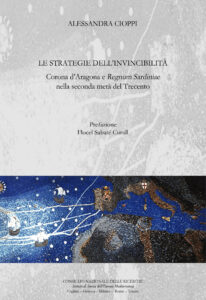 Alessandra Cioppi, laureata in Lettere Classiche, diplomata in Archivistica, Paleografia e Diplomatica, è ricercatore di Storia presso l’Istituto di Storia dell’Europa Mediterranea (Isem) del Cnr (già Istituto sui rapporti italo-iberici) dal 1984.
Alessandra Cioppi, laureata in Lettere Classiche, diplomata in Archivistica, Paleografia e Diplomatica, è ricercatore di Storia presso l’Istituto di Storia dell’Europa Mediterranea (Isem) del Cnr (già Istituto sui rapporti italo-iberici) dal 1984.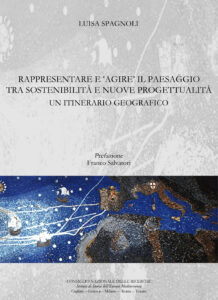
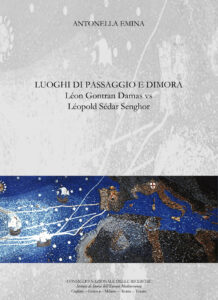 Antonella Emina, primo ricercatore presso l’Istituto di Storia dell’Europa Mediterranea (Isem) del Cnr a Torino, ha lavorato, in particolare, nell’ambito delle francofonie letterarie e delle relazioni culturali italo-francesi. Dal 2008 è direttore responsabile di «RiMe. Rivista dell’Istituto di Storia dell’Europa Mediterranea» (ISSN 2035-794X), semestrale scientifico on-line di sudi umanistici (http://rime.to.cnr.it/). Tra i suoi ultimi lavori, Deconstructing and Recostructing Built-up Landscape in Post-colonial literature: Damas’s poetry, in Beyond Deconstruction: From Hermeneurics to Reconstruction, edited by Alberto Martinengo (Berlin-Boston, De Gruyter, pp. 179-193); La parole efficace d’Aimé Cèsaire entre discours public et correspondence privée, («Francofonia», 61 dicembre 2011, pp. 59-70); Les mots qui pèsent leur poids, in Aimé Césaire: Lettre à Maurice Thorez (Paris, Édicions Alexandrines, 2010, pp. 79-87); Confronto e scambio tra culture: dalla diversità alla complessità, in Identità mediterranea ed Europea, a cura di M. R. Carli, G. Di Cristofaro Longo, I. Fusco (Napoli, Issm, 2010 pp. 329-346). Inoltre ha curato la ristampa anastatica della 1° ed. (Parigi, D. Cobas, 1809) di Carlo Botta, Storia della guerra dell’indipendenza degli Stati Uniti d’America (Soveria Mannelli, Rubbettino, 2010) e il volume Carlo Botta: la ragione e la passione (Ivrea-Cagliari, Hever-Isem, 2011).
Antonella Emina, primo ricercatore presso l’Istituto di Storia dell’Europa Mediterranea (Isem) del Cnr a Torino, ha lavorato, in particolare, nell’ambito delle francofonie letterarie e delle relazioni culturali italo-francesi. Dal 2008 è direttore responsabile di «RiMe. Rivista dell’Istituto di Storia dell’Europa Mediterranea» (ISSN 2035-794X), semestrale scientifico on-line di sudi umanistici (http://rime.to.cnr.it/). Tra i suoi ultimi lavori, Deconstructing and Recostructing Built-up Landscape in Post-colonial literature: Damas’s poetry, in Beyond Deconstruction: From Hermeneurics to Reconstruction, edited by Alberto Martinengo (Berlin-Boston, De Gruyter, pp. 179-193); La parole efficace d’Aimé Cèsaire entre discours public et correspondence privée, («Francofonia», 61 dicembre 2011, pp. 59-70); Les mots qui pèsent leur poids, in Aimé Césaire: Lettre à Maurice Thorez (Paris, Édicions Alexandrines, 2010, pp. 79-87); Confronto e scambio tra culture: dalla diversità alla complessità, in Identità mediterranea ed Europea, a cura di M. R. Carli, G. Di Cristofaro Longo, I. Fusco (Napoli, Issm, 2010 pp. 329-346). Inoltre ha curato la ristampa anastatica della 1° ed. (Parigi, D. Cobas, 1809) di Carlo Botta, Storia della guerra dell’indipendenza degli Stati Uniti d’America (Soveria Mannelli, Rubbettino, 2010) e il volume Carlo Botta: la ragione e la passione (Ivrea-Cagliari, Hever-Isem, 2011).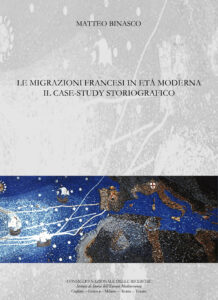 Matteo Binasco (Novi Ligure, 1975) è assegnista di ricerca presso l’Istituto di Storia dell’Europa Mediterranea dal 2010. È autore della monografica Viaggiatori e missionari nel Seicento oltre che di vari articoli sull’espansione missionaria in Nord America e di rassegne storiografiche sulle migrazioni nel bacino mediterraneo durante l’età moderna.
Matteo Binasco (Novi Ligure, 1975) è assegnista di ricerca presso l’Istituto di Storia dell’Europa Mediterranea dal 2010. È autore della monografica Viaggiatori e missionari nel Seicento oltre che di vari articoli sull’espansione missionaria in Nord America e di rassegne storiografiche sulle migrazioni nel bacino mediterraneo durante l’età moderna.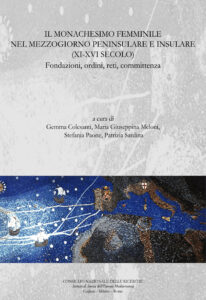 Gemma Colesanti è ricercatrice presso l’Istituto di Storia dell’Europa Mediterranea del Consiglio Nazionale delle Ricerche di Roma e ha insegnato Storia medievale presso l’Università Orientale di Napoli. Ha coordinato per l’Italia il progetto Claustra: Atlas de la esporitualidad femenina de los Reinos peninsulares s. XII-XVI diretto da Blanca Garì dell’Universitat de Barcelona (2012-2014).
Gemma Colesanti è ricercatrice presso l’Istituto di Storia dell’Europa Mediterranea del Consiglio Nazionale delle Ricerche di Roma e ha insegnato Storia medievale presso l’Università Orientale di Napoli. Ha coordinato per l’Italia il progetto Claustra: Atlas de la esporitualidad femenina de los Reinos peninsulares s. XII-XVI diretto da Blanca Garì dell’Universitat de Barcelona (2012-2014).